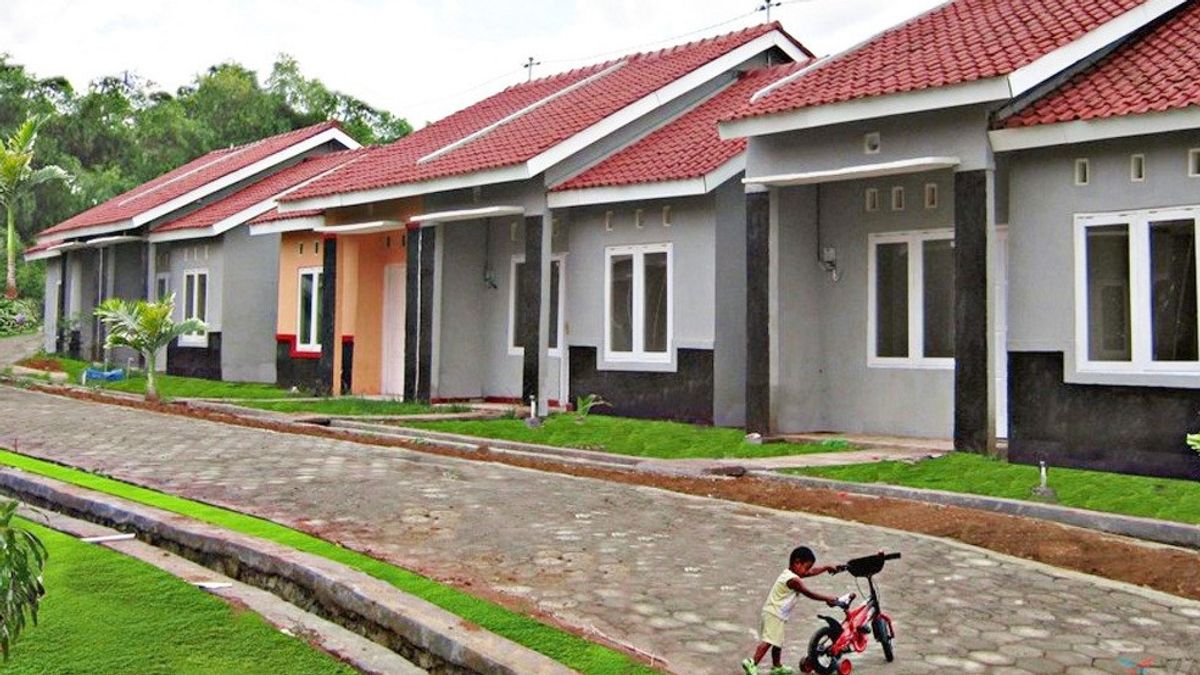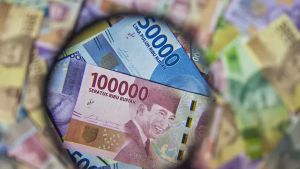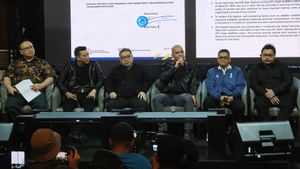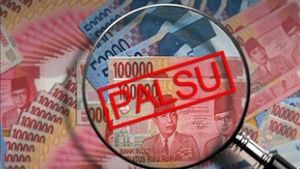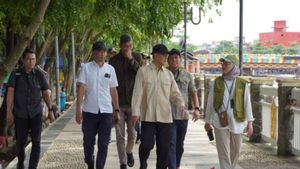JAKARTA - President Joko Widodo (Jokowi) has signed Government Regulation (PP) Number 25 of 2020 concerning the Implementation of Public Housing Savings (Tapera). The main principle of Tapera is mutual cooperation, in the context of the presence of the state in the welfare of its people, especially in the housing sector.
The government together with the DPR supported the issuance of the Law (UU) on Public Housing Savings (Tapera) which aims to collect and provide long-term, sustainable low-cost funds for housing development in order to meet the needs of decent and affordable housing for low-income people (MBR).
Although the Tapera program still has several weaknesses in terms of law, the government remains confident in running this program because it is estimated that this program can help the welfare of many people, especially low-income people, so they can have cheap but decent housing.
Ali Tranghanda, CEO of Indonesia Property Watch (IPW) assesses that with the issuance of the PP, the government has not fully listened to the criticism that has been conveyed by entrepreneurs or from observers. There is almost no change from the beginning of the Tapera.
"It is feared that the existence of this new institution will become a new burden after the number of other housing finance institutions," Ali Tranghanda said in a written statement received by VOI, Thursday, June 4.
Ali said there are several things that still need to be considered. Among them, said Ali, Tapera has the potential to increase the burden on employers in addition to the many contributions, such as BPJS Health, BPJS Employment, and others.
"Even though the contribution rule is 2.5 percent for workers and 0.5 percent for employers, in fact there are many workers who refuse so that the overall burden is borne by employers," said Ali.
From the institutional side, according to Ali, the government should be able to use existing institutions with a single contribution system to then distribute them for health, education, pension, and housing contributions. So that entrepreneurs are not burdened by several different fees in terms of administration.
Ali further said, Tapera should be more of a non-profit and no investment manager is needed in managing its funds. Costs incurred for investment managers, employee costs, operational costs and others create high cost burdens, which will burden the government or later become more commercially oriented.
The appointment of an investment manager as the manager of the Tapera fund carries a risk of loss. If the management results are loss, according to the Capital Market Law, the investment manager cannot be blamed for investment losses.
"It is very ironic because the Tapera fund is an account of people's money," said Ali.
According to him, the supervision carried out should involve representatives of the Tapera participants, in this case the community, professionals, and entrepreneurs because the Tapera funds are public funds.
Regarding a portion of the Tapera capital funds will be flowed from the Housing Financing Liquidity Facility (FLPP) with a potential fund of IDR 30 trillion, said Ali, this is a form of government's lack of understanding regarding the different concepts between Tapera and FLPP.
"FLPP itself comes from the APBN which is different from the Tapera that comes from the community," he said.
Vigilant ManagementHe continued, although Tapera implements a mutual cooperation system, it is not very useful for those who already have a house. Because the funds are only used to help the MBR group get a house, while the middle class also has the right to own a house.
Ali is worried that there will be many loopholes that can be entered for the benefit of certain parties, because the collected Tapera funds can reach IDR 50 trillion a year. This fund, which is managed by the investment manager, can have a commercial tendency with certain parties.
"Therefore, Indonesia Property Watch specifically asks the government to take a critical response to the implementation of this Tapera in terms of supervision and implementation in the field as well as a warning to BP Tapera to be able to provide honest and transparent implementation and management of funds," said Ali.
BP Tapera itself is actually not a new institution, where previously it was called the Housing Savings Advisory Board - Bapertarum Civil Servant - PNS).
With the new nomenclature, BP Tapera is now not only a collection of contributions for civil servants, but will manage funds from employee contributions from BUMN, BUMD, TNI and Polri, private companies, and independent participants.
Before becoming BP Tapera, Bapertarum-PNS had around 6.7 million participants, both active and retired civil servants, with funds under management of IDR 12 trillion.
When it was still called Bapertarum, this institution collected money from civil servants by deducting salaries every month so that the money in Bapertarum PNS was basically PNS money and had to be returned to them.
Participation in BP Tapera will end if the worker has retired, namely the age of 58 years. Later, after retiring, participants can get their savings and proceeds from development funds that are placed in bank deposits, government debt securities, and other investments. The Tapera Committee consists of the Minister of Finance, the Minister of PUPR, the Minister of Manpower, and independent members. The committee is chaired by the PUPR Minister.
The English, Chinese, Japanese, Arabic, and French versions are automatically generated by the AI. So there may still be inaccuracies in translating, please always see Indonesian as our main language. (system supported by DigitalSiber.id)
